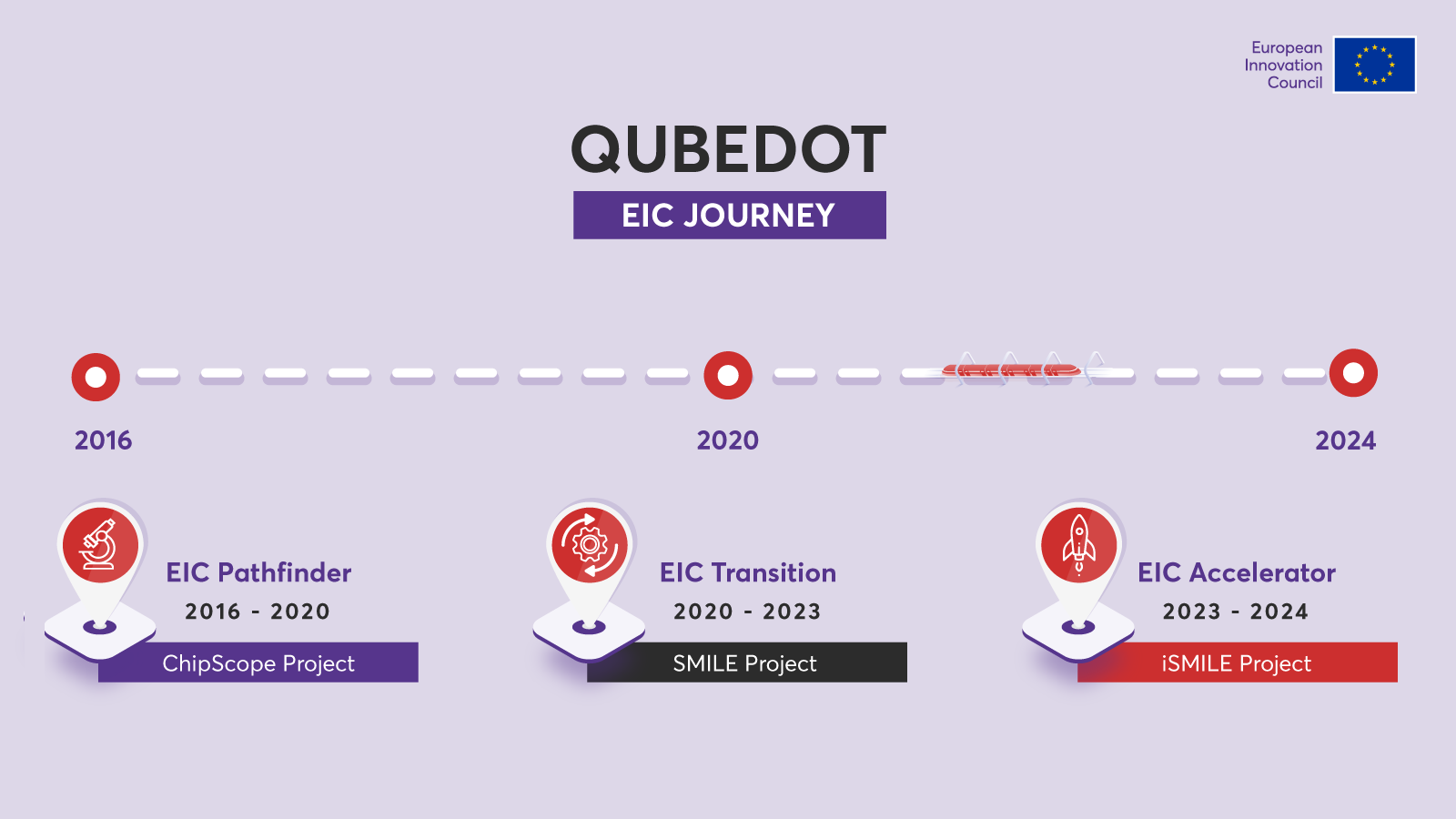
The iSMILE project – integrated scalable microLED engines – has become the first-ever EIC funded project that has managed to secure both EIC Pathfinder and EIC Transition funding (EIC Transition pilot call from 2019) in the past, moving to the EIC Accelerator via Fast track. The project has been selected to receive EIC Accelerator full blended support (grant and equity investment) in a highly competitive process. The project has built on the success of the ChipScope project and the SMILE project.
Recognising the market potential of gallium nitride-based microLEDs for their brightness and scalability, the ChipScope project was initiated in 2016 under the EIC Pathfinder programme to develop a microLED demonstrator for chip-based microscopy. Completed in 2020 with partners across Europe, ChipScope showcased the matrix-like arrangement of microLEDs for various applications.
During the 2020-2023 period, the project SMILE (Scalable Structured Micro Illumination Light Engines) received funding from the EIC Transition. The multilateral project with partners from Spain, Italy and Germany gained substantial additional momentum, building directly on the success of ChipScope. As part of SMILE project, the scale-up company QubeDot – besides the technological development – was able to perform a comprehensive market research and set up a large network of interested end-users.
With the demand for microLEDs and microLED displays rising quicker and faster than the production capacities of the young scale-up, QubeDot managing directors decided to take the company's growth to a whole new level by applying for EIC Accelerator funding. Project iSMILE was selected to receive EIC Accelerator funding, following the 2023 EIC Accelerator cut-off in November.
"QubeDot's success story would not have been possible without the EIC – the research and development necessary up to this point would have been too risky for private investors. We are therefore more than grateful for the support, be it through the University of Barcelona, the TU Braunschweig, the University of Rome or directly through the programme coordinators from the EIC."
QubeDot co-founder Heiko Brüning
QubeDot is getting ready for negotiations for a series A investment round – supported by the EIC Fund.
- Project locations
- AustriaItalySwitzerlandGermanySpain
- Project website
- https://qubedot.com/technology/